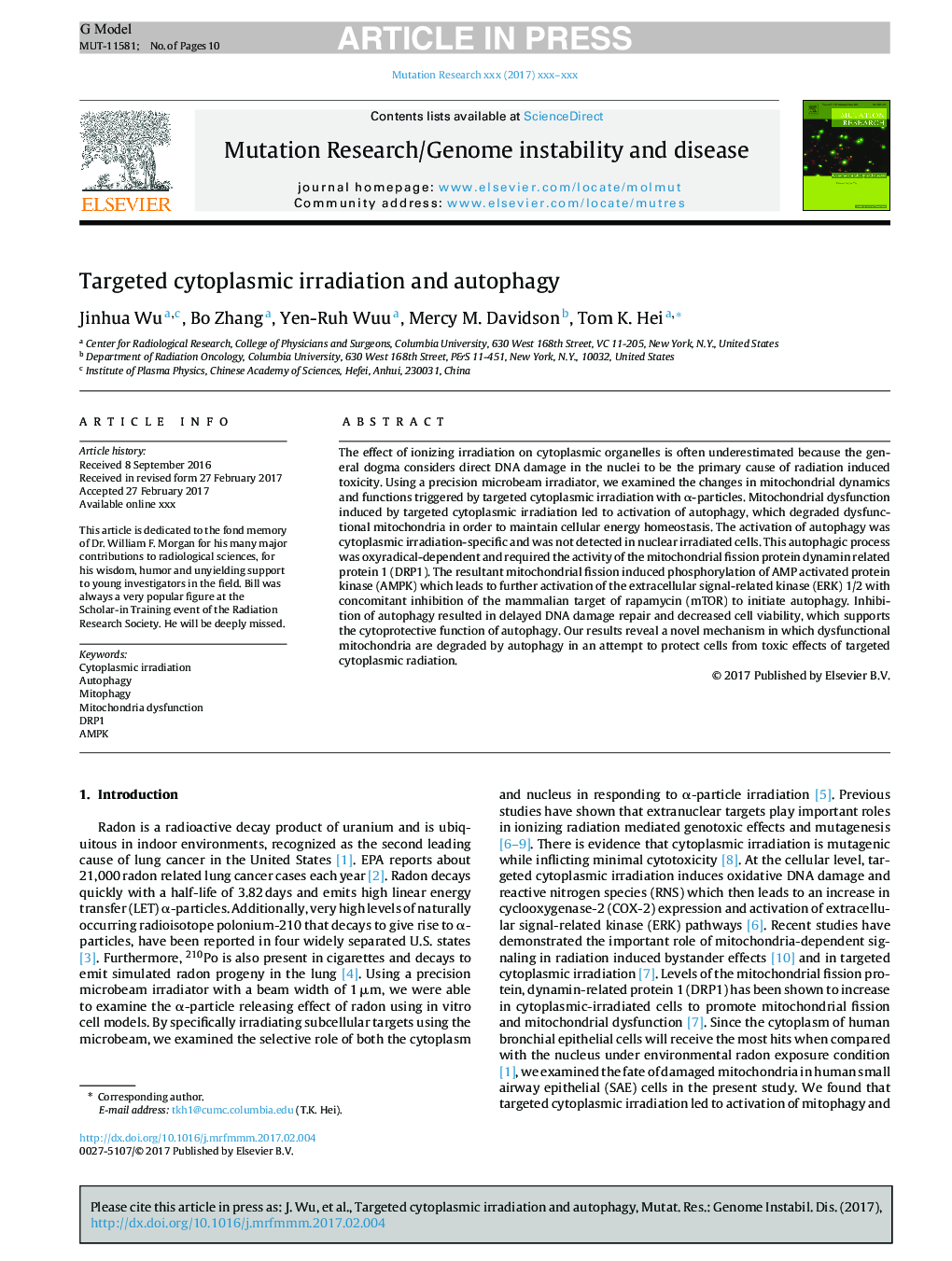| Article ID | Journal | Published Year | Pages | File Type |
|---|---|---|---|---|
| 8455661 | Mutation Research/Fundamental and Molecular Mechanisms of Mutagenesis | 2017 | 10 Pages |
Abstract
The effect of ionizing irradiation on cytoplasmic organelles is often underestimated because the general dogma considers direct DNA damage in the nuclei to be the primary cause of radiation induced toxicity. Using a precision microbeam irradiator, we examined the changes in mitochondrial dynamics and functions triggered by targeted cytoplasmic irradiation with α-particles. Mitochondrial dysfunction induced by targeted cytoplasmic irradiation led to activation of autophagy, which degraded dysfunctional mitochondria in order to maintain cellular energy homeostasis. The activation of autophagy was cytoplasmic irradiation-specific and was not detected in nuclear irradiated cells. This autophagic process was oxyradical-dependent and required the activity of the mitochondrial fission protein dynamin related protein 1 (DRP1). The resultant mitochondrial fission induced phosphorylation of AMP activated protein kinase (AMPK) which leads to further activation of the extracellular signal-related kinase (ERK) 1/2 with concomitant inhibition of the mammalian target of rapamycin (mTOR) to initiate autophagy. Inhibition of autophagy resulted in delayed DNA damage repair and decreased cell viability, which supports the cytoprotective function of autophagy. Our results reveal a novel mechanism in which dysfunctional mitochondria are degraded by autophagy in an attempt to protect cells from toxic effects of targeted cytoplasmic radiation.
Related Topics
Life Sciences
Biochemistry, Genetics and Molecular Biology
Cancer Research
Authors
Jinhua Wu, Bo Zhang, Yen-Ruh Wuu, Mercy M. Davidson, Tom K. Hei,
